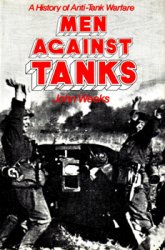We must not only regard the financial interests of these prosperous companies, but we must remember the human interest of the miner at the bottom of the mine.
1904, 5 May.
A. speech made. shortly before Churchill ‘‘crossed the aisle” from the Conservatives to the Liberals, this statement made clear which party he considered his ‘ natural home”. See also 1926 General Strike.
I do not wonder a bit at the miners’ demand. I cannot find it in my heart to feel the slightest surprise, or indignation, or mental disturbance. My capacity for wonder is entirely absorbed, not by the miners’ demand, but by the gentleman in the silk hat and white waistcoat who has the composure and the complacency to deny that demand and dispute it with him_
What about mining royalties? In all this talk about the importance of cheap coal to our industries and to the poor consumer we have had no mention of mining royalties. No. We never mention that.
1908, 6 July.
I am very sorry that we have had to debar so many miners from going to the war in the Armed Forces. I respect their feelings, but we cannot afford it; we cannot allow it. Besides the need for their services in the pits, there is danger in the pits too, and where there is danger there is honour. “Act well thy part, there all the honour lies,” and that is the motto I want to give out to all those who in an infinite variety of ways are playing an equally worthy part in the consummation of our high purpose.
1942, 31 October. Westminster Central Hall.
(End, 254.)
The quotation is from Alexander Pope; the following line read. s, "Act well thy part, there all the honour lies.”
The only quarrel I have ever had with the miners was in the war when I had to forbid them from pouring out of the mines to join our armies in the field. Let [Socialists] dismiss from their minds these malicious tales that a Conservative Government would be hostile to the mining community. I have always affirmed that those who work in these hard and dangerous conditions far from the light of the sun have the right to receive exceptional benefits from the nation which they serve.
1951, 21 July. Woodford. (Stemming, 97.)




 World History
World History









